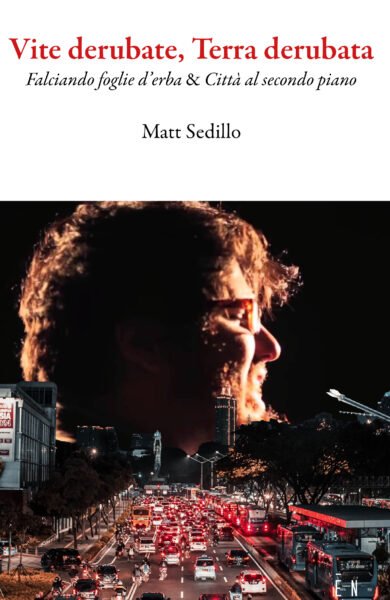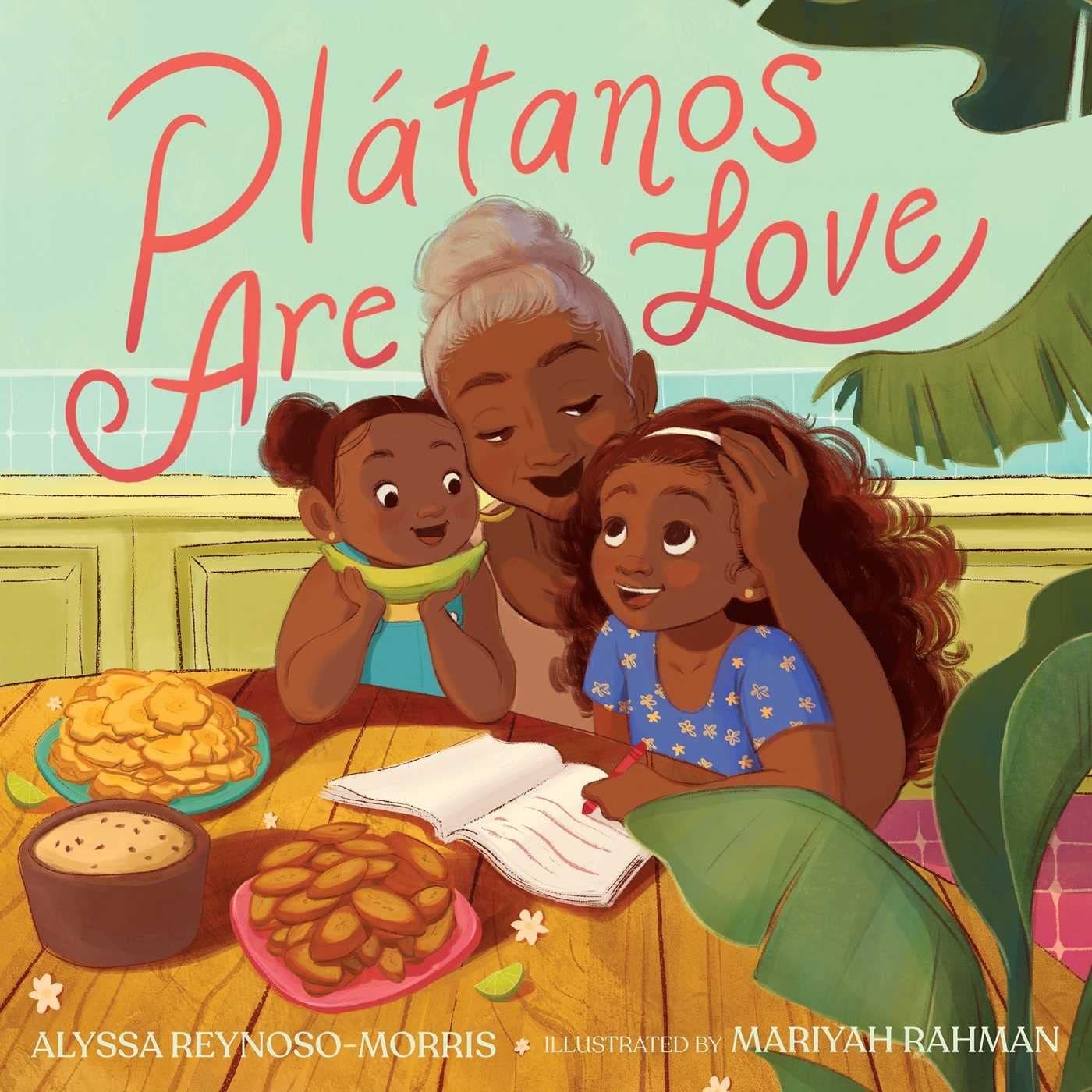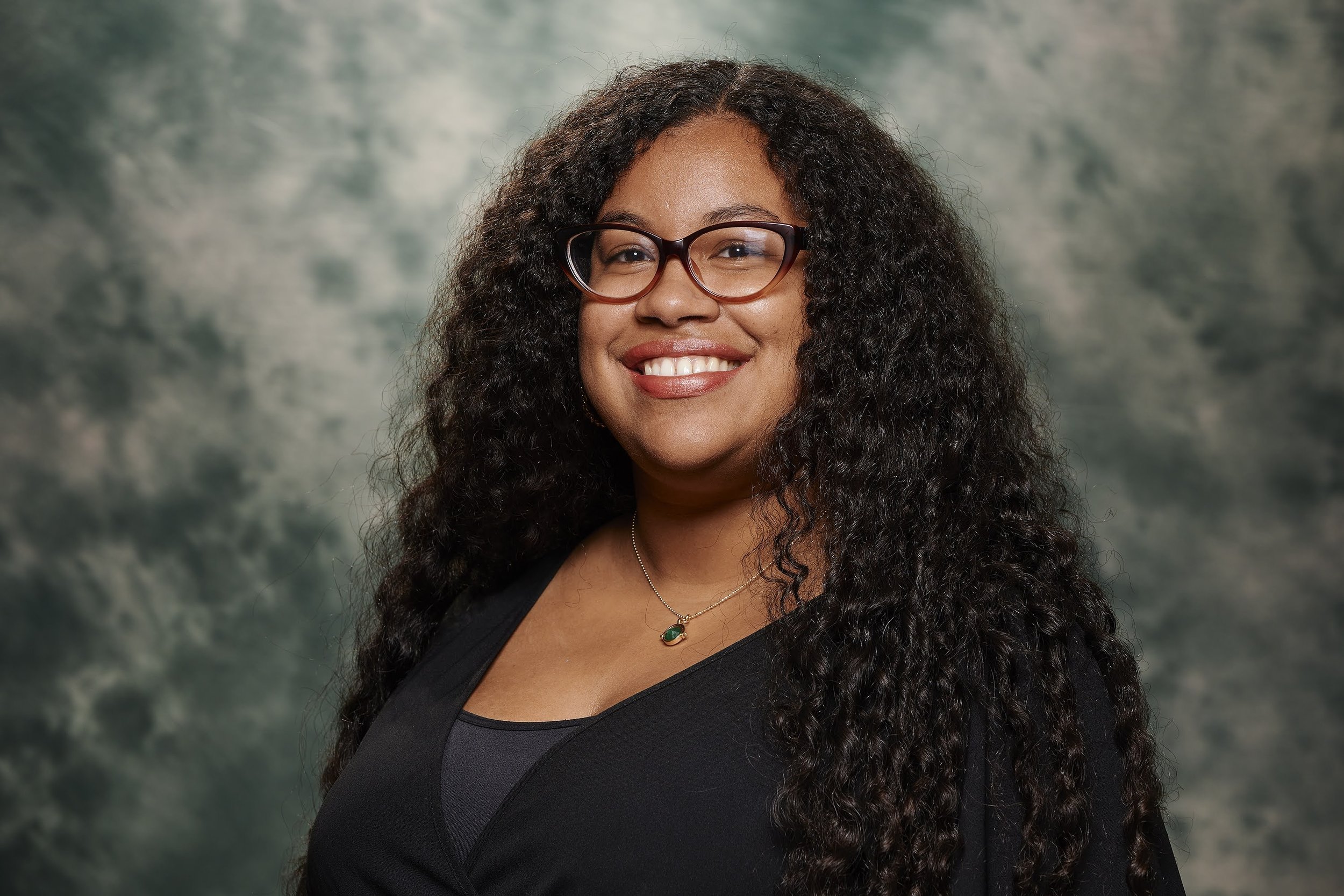Barely Floating begins with a splash—both literally and figuratively. Natalia De La Cruz Rivera y Santiago (also known as Nat) dares her brother’s friend, Beto, to a race at her local Inglewood pool. The 12-year-old proud gorda is certain that she can out-swim him, and she’s willing to bet money on it. Ten bucks, to be exact.
“From here to the full length of the pool,” Nat tells Beto as a crowd grows around them. “C’mon. What are you afraid of?”
In this forthcoming middle grade novel, the image of a self-assured Latina girl in Los Angeles came early to Pura Belpré Honor Award-winning author Lilliam Rivera. “I love this character,” Rivera said. “She is aware of her power, and that is because she grew up in this kind of environment where they really are about teaching that.”
It’s at this same pool where Nat bet Beto that she learns about synchronized swimming. When a local team, called the L.A. Mermaids, does a demonstration in the water, Nat immediately falls in love. But her activist mom and professor dad feel the sport is too body-conscious. Their no-for-now does not stop Nat, who devises a plan to join the team anyway. She enlists the help of her older cousin, Sheila, and soon dives into the world of synchronized swimming all while telling herself she’ll be able to convince her parents to let her stick with it.
Out on August 29, 2023, by Kokila Books, Barely Floating is a heartwarming and hilarious middle grade novel about a girl with an unforgettably fierce spirit who goes after what she wants. It’s a bumpy ride, but filled with moments both tender and funny. For her book, Rivera drew from personal experience as a synchronized swimming mom to expertly depict the world of synchronized swimming. Readers are also drawn close into issues related to class and the different tensions between girls and their mothers. There’s also an important lesson here in balance, on how sometimes we can’t do it all alone, instead we can seek community in helping us juggle what we need, to get the work done.
““Barely Floating” is a heartwarming and hilarious middle grade novel about a girl with an unforgettably fierce spirit who goes after what she wants. It’s a bumpy ride, but filled with moments both tender and funny. ”
On behalf of Latinx in Publishing, I spoke with Rivera about her new book, Barely Floating. She shared the inspiration behind the middle grade novel, what it was like to anchor Nat’s story in this sport, and more.
This interview has been edited for clarity and brevity.
Amaris Castillo (AC): What inspired you to write this book?
Lilliam Rivera (LR): Barely Floating is inspired by my life as a synchronized swimming mom. My oldest daughter is in college now, but when she was about seven years old we would take her to the local public pool. She was just learning how to swim and (one day) a Latina coach there was like, ‘Do you wanna learn how to dance in the water?’ She wanted to, so then I looked for a team out here in LA that was inclusive. I found one team that’s in the city proper. It’s Black-owned, and she joined that team. I lived in that world with her for a few years, and this was before I even started writing books. But I would be known as the mother who would bring a laptop to the competitions because I would just spend a lot of time writing and observing that world.
It’s also inspired by young children; people that I know who fall in love with something and maybe they’re unable to voice why they love it, or maybe their parents don’t think it’s going to work out. Kids start and stop a lot of things at that age. I wanted to write about this character, Nat, who is very much grounded in what she believes in and lives in a family that’s so outspoken, politically active, and about community. And yet, they still have their own blind side when it comes to their own children. I really wanted to explore that aspect of growing up in that kind of environment.
AC: One thing I loved about your book is the confidence and grit Natalia has. She’s out here daring other kids into swim bets to make money. She’s also a proud gorda and knows she’s beautiful. What was it like crafting this character who, from the first page, seems so empowered?
LR: Nat came to me very early on. The first image was really that first chapter of her out-swimming somebody. She was ready. She knew she could beat whoever. I love this character. She is aware of her power, and that is because she grew up in this kind of environment where they really are about teaching that. I love this family, but I also love that they still fall short, even when they’re doing their very best.
Nat is very business-oriented. She is ready to get paid. To her, it’s like ‘I can do this. No one can tell me not to.’ That’s why she went on to join this team, and to negotiate who she could convince to help her in that: her cousin and her brother, and all the people involved to help her achieve her dream. I feel that is a reflection of her mother, who is also that person who is community-oriented. She’s (Natalia) learned that. That’s why she’s so fully formed in that way.
AC: From the moment Natalia falls in love with synchronized swimming and secretly tries out for a local team, much of her life is turned upside down. The L.A. Mermaids is Black-owned and diverse, but Natalia laters learns that as a whole the sport is white-dominated. Can you talk about your decision to anchor your book in this sport, and what Natalia’s story says about kids of color who may be in a similar situation?
LR: When we were going to these teams, I was really aware of the discrepancy between those who come from affluent neighborhoods and others who don’t. Being on a team itself is a lot of money, and even Nat notices. She sees all the fees. And this is the key: As a parent or guardian, you have to really figure out ways to offset these costs. It’s almost another job, trying to find ways of navigating these kinds of systems that are not meant to be inclusive. With Nat, she just tries. To me it’s all about a community. It’s the community that could try to figure out a way of making things happen. Nat relies on her cousin and her brother, but she’s also relying on her best friend, and her teammates, as well: ‘How can I go to this competition if I don’t have a ride?’ These are aspects of my own experience when I had my daughter involved (in artistic swimming) because it was a huge commitment. But I leaned on a lot of people.
With young people, you’re not doing this alone. It’s like, ‘How can I go about accomplishing a dream or whatever it is I want to do? If I want to do art, maybe someone I know is an artist. Maybe I could see them.’ Facilitating those kinds of conversations is such a white privilege thing. They say, ‘An overnight success,’ it’s not when you realize they knew somebody. They were able to get this job somehow, because they had a connection to someone. And that’s a skill set that we all have to do. It’s like, who do you know who could help you? I think that’s a goal for our community. Because that’s all we ever do, is help each other. That’s how we survive. Even young people can do that. That is the one thing that I would love readers to take away, that community doesn’t start with just adults. A community starts with your schoolmates, with your friends, with those around you. They can help you problem-solve in a way that maybe you didn’t think about.
AC: There’s a tension throughout your book between Natalia and her activist mom. Natalia is keenly aware of all the things her mom is against, which include synchronized swimming and the beauty standards in fashion magazines. Natalia has different views. What message were you hoping to send by highlighting this tension between a child and her parent?
LR: Relationships are all so complicated. It’s not just black and white. We’re really living in a kind of gray. I wanted that relationship between Nat and her mom to reflect that—in the sense that they both needed to grow. Their relationship needed to shift.
There’s this moment when you’re in that age group, and you’re trying to really place your feet firmly on the ground in the world. You want to be seen and heard as the person that you are for that moment. And all that can change, but for this moment, look at me. Sometimes as parents, we overlook that because we’re busy just trying to protect our children at all costs, and that never changes as they grow older. But I really wanted this idea of: It’s not yes, or no, or right, or wrong. It’s more like, this is where I am. This is where I am standing, and can you meet me in this spot? Can we have a conversation about where we go from here? What path do we take from here that we can take together? And I love that, that forces her parents to just stop and see that their biases are really clouding their vision of their daughter, that their wanting to protect her is messing with her creativity. You could look into the history of things and maybe find a way of enjoying it, or reclaiming it as your own.
AC: What are you hoping readers take away from Barely Floating?
LR: First, I hope that they fall in love with Nat because I love her. And not only Nat, but even her cousin, and her (best friend) Joanne and her teammates and their group chats. I hope that they enjoy the humor because I think there’s a lot of really funny moments. Nat has a very unique sense of humor and is very honest when it comes to what she says and does.
And I hope that they get to enter a world that maybe not that many people know about. Synchronized swimming is called artistic swimming now. It’s such a hard overall sport. It’s amazing the stuff that they do underwater—doing flips and kicks. I’m just always in awe of anyone who dedicates time and effort to do a sport. This book is part of that conversation, of all these kinds of great sport books. And love that it’s based here in Los Angeles and these characters are very relatable. It’s a really fun and funny, enjoyable read—even if you don’t like swimming.
Lilliam Rivera is an award-winning author. Her many books include young adult novels The Education of Margot Sanchez, Dealing in Dreams, Never Look Back (a Pura Belpré Honor book), as well as the Goldie Vance series for middle grade readers and the forthcoming, stand-alone middle grade book Barely Floating. Her latest novels We Light Up the Sky and Unearthed: A Jessica Cruz Story were named “Best Books of 2021” by Kirkus Review and School Library Journal.
The Pushcart Prize winner has also received fellowships and grants from PEN America, the Elizabeth George Foundation, Clarion Workshop, and the Speculative Literature Foundation. Her writing has appeared in the Washington Post, the New York Times, and Elle, among others.A Bronx, New York native, Lilliam currently lives in Los Angeles.
Amaris Castillo is an award-winning journalist, writer, and the creator of Bodega Stories, a series featuring real stories from the corner store. Her writing has appeared in La Galería Magazine, Aster(ix) Journal, Spanglish Voces, PALABRITAS, Dominican Moms Be Like… (part of the Dominican Writers Association’s #DWACuenticos chapbook series), and most recently Quislaona: A Dominican Fantasy Anthology and Sana, Sana: Latinx Pain and Radical Visions for Healing and Justice. Her short story, “El Don,” was a prize finalist for the 2022 Elizabeth Nunez Caribbean-American Writers’ Prize by the Brooklyn Caribbean Literary Festival. She is a proud member of Latinx in Publishing’s Writers Mentorship Class of 2023 and lives in Florida with her family and dog, Brooklyn.

























